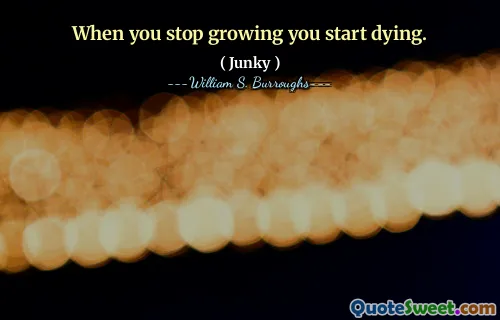
Junk turns the user into a plant. Plants do not feel pain since pain has no function in a stationary organism. Junk is a pain killer. A plant has no libido in the human or animal sense. Junk replaces the sex drive. Seeding is the sex of the plant and the function of opium is to delay seeding.Perhaps the intense discomfort of withdrawal is the transition from plant back to animal, from a painless, sexless, timeless state back to sex and pain and time, from death back to life.
In William S. Burroughs' "Junky," he explores the transformation caused by substance use, suggesting that junk, or heroin, essentially reduces the user to a plant-like state. This state is characterized by a lack of pain, desire, and a detachment from the human experience. The author contrasts the mindless existence of a plant with the intensity of human sensations, particularly pain and sexual drives, proposing that junk serves as a means to escape these fundamental human experiences.
Burroughs further illustrates that withdrawal from junk is a painful rebirth, signaling the transition back to a more animalistic state where individuals regain their capacity to feel discomfort and desire. The process highlights the struggle between the tranquil numbness provided by the drug and the chaotic reality of being human. This journey reflects a deeper commentary on addiction, drawing a stark line between numbness and the vivid sensations of life.





